Keep track of the contenders, the maybes, and those who’ve left the race.
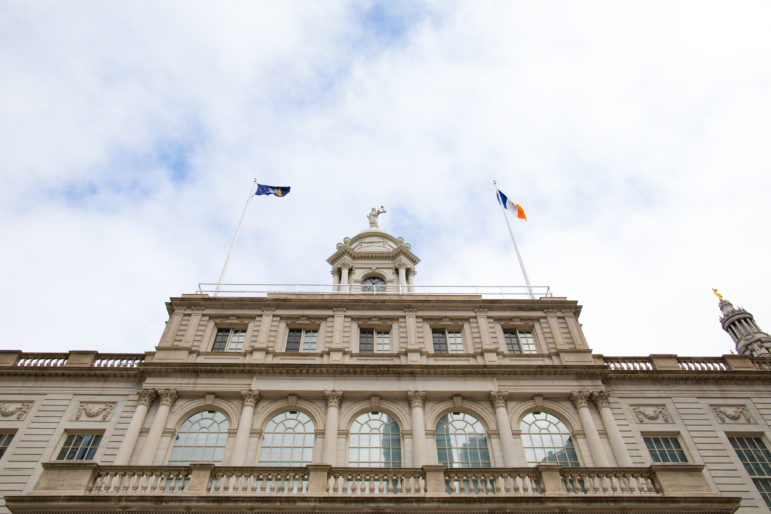
Mayoral Photography Office
Updated Wednesday, March 24
No votes will be cast in the race for New York City mayor until the primaries in June 2021, but the race has been underway for years, with candidates positioning themselves, raising money and, in a couple cases, entering and already leaving the race.
The public campaign of speeches, debates, mailers and commercials will unfold over the next few months. Here’s a quick reference to the people who might be on your 2021 mayoral ballot.
The Democratic contenders
Eric Adams: As a New York City police officer, Adams helped found 100 Blacks in Law Enforcement Who Care and was a highly visible critic of policing policy during the Giuliani and Bloomberg administrations. He retired from the NYPD as a captain and then won election to the state Senate, serving four terms. He was elected to the Brooklyn borough presidency in 2013. Early in his term he cultivated a reputation as a champion of development, famously adapting former Alaska Gov. Sarah Palin’s “drill, baby, drill” into “build, baby, build.” More recently he has focused on health issues, tapping into his own struggle with diet to advocate for public measures to support the consumption of plant-based foods. Adams has more than $2 million in the bank and would be expected to garner significant support in Brooklyn and among Black voters. He has indicated that his line of argument will focus heavily on the need for the next mayor to be a better manager. Campaign website
Shaun Donovan: Donovan has no electoral experience but a deep resume of government service in New York and Washington. A federal housing official in the Clinton and early George H. W. Bush administrations, he served as Mayor Bloomberg’s housing commissioner from 2004 to 2009, a period when that administration launched the New Housing Marketplace plan, a 165,000-unit affordable housing program. Donovan then joined the Obama administration—first as secretary of the Department of Housing and Urban Development, then as director of the White House Office of Management and Budget. After announcing his exploration of a mayoral run earlier this year, Donovan quickly raised a healthy amount of cash. His ties to Bloomberg might play poorly with the left, but others will welcome his association with a more business-friendly administration, as well as his Washington connections. Campaign website
Kathryn Garcia: Garcia resigned in September as de Blasio’s sanitation chief, a position she’d held since his first year as mayor. Over her tenure she also became his go-to “fixer,” taking charge of NYCHA as interim leader and serving as “food czar” at the height of the COVID-19 crisis. Campaign Website
Ray McGuire: McGuire is Citigroup’s Global Head of Corporate and Investment Banking, having previously worked for Morgan Stanley and Merrill Lynch across a 36-year career in finance. He serves on a slew of nonprofit boards, including the Carnegie Endowment for International Peace, Lincoln Center and The New York Public Library. Campaign website
Dianne Morales: Until recently, Dianne Morales was the executive director and chief executive officer of Phipps Neighborhoods, a major Bronx nonprofit. A Harvard and Columbia grad, Morales’ platform emphasizes women’s empowerment, restorative racial justice and a guaranteed minimum income. Campaign website
Scott Stringer: The New York City Comptroller made his candidacy official in September. He’s been a constant critic of Mayor de Blasio during his term and a half as the city’s chief financial officer; in fact, he considered running for mayor in 2013, before deciding to run for comptroller instead, and weighed challenging the mayor in 2017 but opted to seek re-election. A former state Assemblyman, he won a tough primary to become Manhattan borough president in 2005 and then beat former Gov. Eliot Spitzer to get his current post. He’s been endorsed by a diverse array of elected Democrats and, with $2.3 million in the bank, has the largest war chest at present. Having used the comptroller’s office to craft several ambitious policy initiatives, Stringer could be the policy wonk of the race, but as a White, male, career politician, he might not be the face of change some voters are seeking. Campaign website
Maya Wiley: A civil rights lawyer who has been affiliated with the Department of Justice, NAACP and ACLU, Wiley founded the Center for Social Inclusion before becoming Mayor de Blasio’s counsel in 2014. She left that post and led the Civilian Complaint Review Board from 2016 to 2017 and now is a vice president at the New School and a professor at the Milano School. In her announcement speech, Wiley lobbed thinly veiled barbs at her former boss, de Blasio, but her tenure as his lawyer—including work on controversial topics like the mayor’s failed “agent of the city” FOIL dodge—could complicate Wiley’s effort to distance herself from the unpopular mayor. She’s entering the money race relatively late, but a newly generous public-financing match (and the spending cap that comes with it) will make it easier for candidates to reach a competitive funding level this year. Campaign website
Andrew Yang: Rumors about the entrepreneur seeking the mayoralty have circulated since he ended his 2020 presidential campaign, but they were reignited after a poll gauging support for Yang began circulating. In late December, he filed paperwork to run, and announced his candidacy in January. He quickly shot to the head of the polls.
The Republican contenders
Curtis Sliwa: After several years as a leader of the Reform Party, the Guardian Angels founder rejoined the Republican Party earlier this year. He is focusing his campaign on public safety, but also emphasizing fiscal restraint and “keeping the Specialized High School Admissions Test (SHSAT) and Gifted and Talented programs.” Campaign website
Fernando Mateo: A restaurateur, nonprofit leader and the longtime head of the New York State Federation of Taxi Drivers. His platform focuses on reviving small businesses. Campaign website
The dark horses
According to the city’s Campaign Finance Board, these candidates are registered as mayoral contenders.
Muhammad AbdulMalik
Nicolae Bunea Website
David Catapano Facebook
Art Chang Website
Edward Cullen Website
Avatar Davi Website
Thomas P. Downs
Guiddalia E. Emilien Twitter
Vitaly A. Filipchenko Website
Cleopatra Fitzgerald Website
Raja Flores Website
Aaron Foldenauer Website
Quanda Francis Website
Garry Guerrier Website
Peter M. Guimaraes Facebook
Walter Iwachiw
Max Kaplan
Barbara Kavovit Website
Beverly Kolber
Christopher S. Krietchman Website
Abbey Laurel-Smith 2013 Website
Aaron Miles Website
Devi Nampiaparampil
Wanda Nunez Facebook
Grady O’Bryant
Elizabeth O’Hagan Website
Adam Oremland Facebook
William Pepitone Facebook
Angelo Pinto
Cardon L. Pompey
Paperboy L. Prince Website
Stacey H. Prussman Website
Julia Qing Reaves Website
Stephen Seely Website
Ira Seidman Website
Ahsan A. Syed Twitter
Jocelyn Taylor Campaign website
Isaac Wright Campaign Website
Not running
They were in the race, or considering a run. Now they’re not.
Ruben Diaz Jr.: Diaz, Jr. dropped out of the race in early 2020, citing a desire to spend more time with his family. Having served as borough president since winning a 2009 special election, Diaz, Jr., was believed to have had a shot at becoming the city’s first Latino mayor—succeeding where Herman Badillo and Fernando Ferrer failed. When he left the mayoral race, the borough president’s father, Councilmember Ruben Diaz, Sr., was in a competitive race for Congress. The Diazes are ideologically distant, creating increasing awkwardness for the younger and more progressive man. Now, after lengthy careers in state and city office, both men figure to be out of public life by the end of 2021.
Zach Iscol: A former Marine who served in Iraq, Iscol is the founder of a mental-health non-profit called the Headstrong Project and Hirepurpose, a service for veterans and military families seeking employment. He joined the mayor’s race in October but dropped out in January to pursue the comptroller’s seat instead. Campaign website
Read more: Meet the Former Marine and the Brooklyn Councilmember Who Are Running for Mayor
Corey Johnson: The Council speaker was the first to formally declare his candidacy but dropped out in September 2020 citing a bout of depression. Had he continued, Johnson would have encountered static over the city budget passed in June, which neither cut the police budget enough to satisfy NYPD critics nor treated cop spending as sacrosanct enough for the department’s loyalists. All Johnson’s predecessors as Council speaker since the position was created in 1986—Peter Vallone, Gifford Miller, Christine Quinn and Melissa Mark-Viverito—have been unable to move on to higher office. In March, Johnson entered the race for comptroller.
Carlos Menchaca: Menchaca’s surprise announcement that he was considering a mayoral run followed the collapse of the Industry City expansion plan, which he had said he would oppose. Menchaca has wrestled with the de Blasio administration over development issues and, in legislative and committee work, focused on immigration policy. He announced he was suspending his campaign on March 24. Twitter
Read more: Meet the Former Marine and the Brooklyn Councilmember Who Are Running for Mayor
Christine Quinn: The first female and first openly gay speaker of the City Council was the frontrunner early in the 2013 race for mayor, but her association with Mayor Bloomberg sunk her in the Democratic primary, where she finished a distant third. Quinn quickly shifted to the nonprofit sector and the social-service agency Women in Need (WIN), where she became a prominent voice in discussions of homeless policy.
Max Rose: Two years after unseating a Republican incumbent to win a seat representing Staten Island and southern Brooklyn in Congress, Rose was defeated by a healthy margin on November 3. Rose filed paperwork to run for mayor in December, but bowed out on January 3, writing: “I urge every candidate to recognize that across the five boroughs no one believes that City Hall is on the side of the working class. People are scared and unsure if the New York they love will still exist in the years to come. The next mayor can’t just balance the budget, he or she must build a social contract that leaves no one behind. New York City can set the governing example for the rest of the world.”
Loree Sutton: A psychiatrist who retired from the U.S. Army as a brigadier general, Sutton served as the city’s first veterans affairs commissioner from 2016-2019. Sutton announced her campaign in late 2019 but struggled with fundraising. She suspended her run on March 10, saying in a statement that she hopes to work with her rival candidates in the future to form a coalition to aid in the city’s post-COVID recovery. “With our combined insight, knowledge and experience, we would serve as a diverse and uniquely-informed group of citizens, volunteering to support the new Mayor in setting the essential conditions for recovery,” she wrote.
Sara Tischwell: A Texas native who has lived in the city since 1989, this one-time Republican candidate “has worked as a portfolio manager, a partner in a start-up hedge fund, and a long-time analyst and investor in troubled companies and countries.” Her campaign emphasized “valuing compassionate outcomes over compassionate intentions.”
If you have information to add to this page, please contact us.


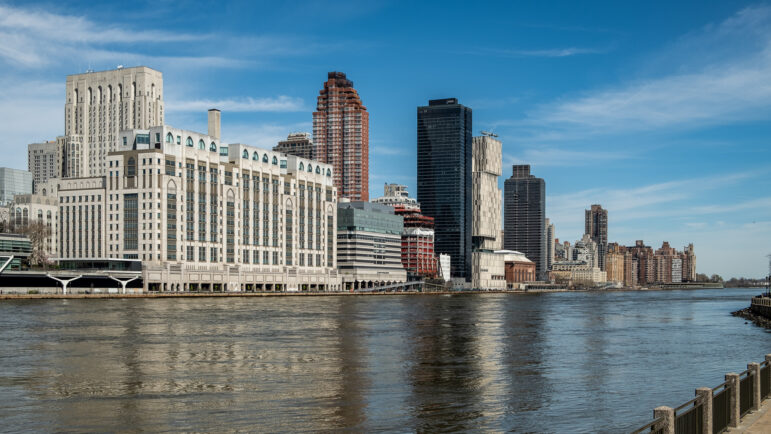
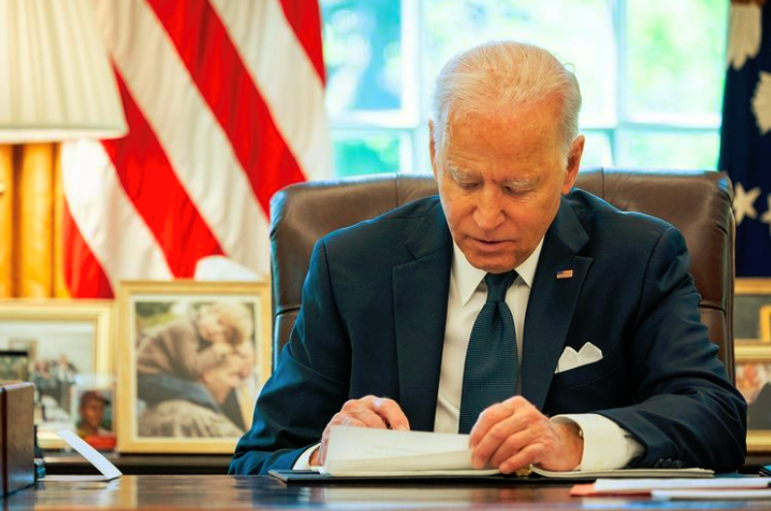
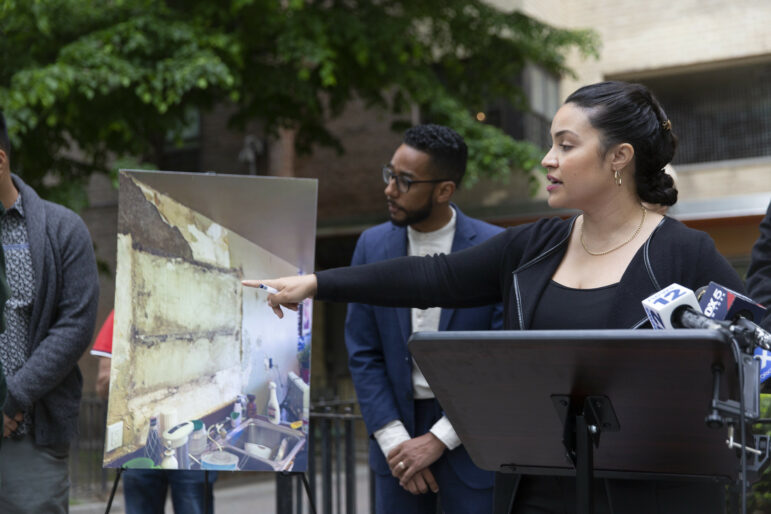

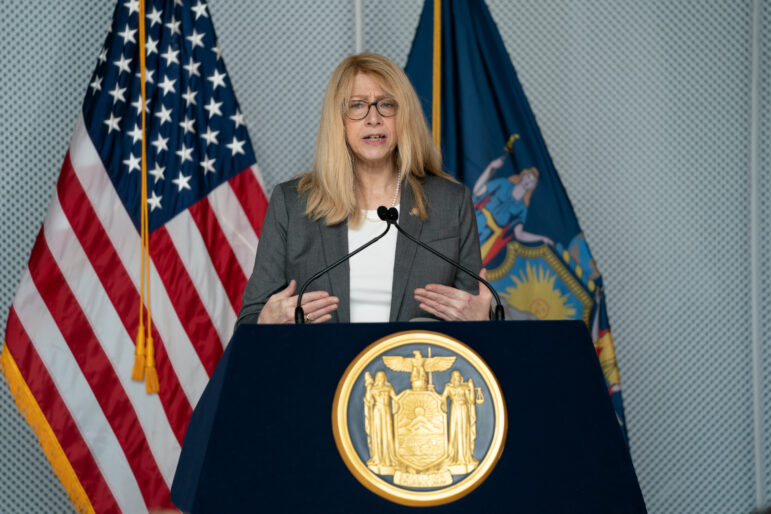


10 thoughts on “Who’s Who in the Race for New York City Mayor”
Kathryn Garcia looks to be the most competent of the bunch. She is an administrator not a ‘woke’ ideologue like our current inept mayor. Her frequently stated admiration of Ed Koch’s mayoralty is a sign that she will champion NYC’s middle class.
Go Carlos!
1#Yang, Donovan or Quinn #2. All the folks who are trying to kill ranked choice voting will not get my support.
I’m thinking Maya Wiley……I’ve lots of time to make up my mind.
Interviewed Zack Iscol this week, and am so impressed. Seems like the real deal. Intelligent, insightful, energetic, respectful; listened and asked questions instead of talking ‘at’ people and didn’t do the ‘politicians pivot’ (unlike Stringer) when asked tough questions. Keeping my eye on him.
David Catapano all the way
Curtis Sliwa
SUPERB!!
THANK YOU FOR THIS AMAZING POST
bravo on this